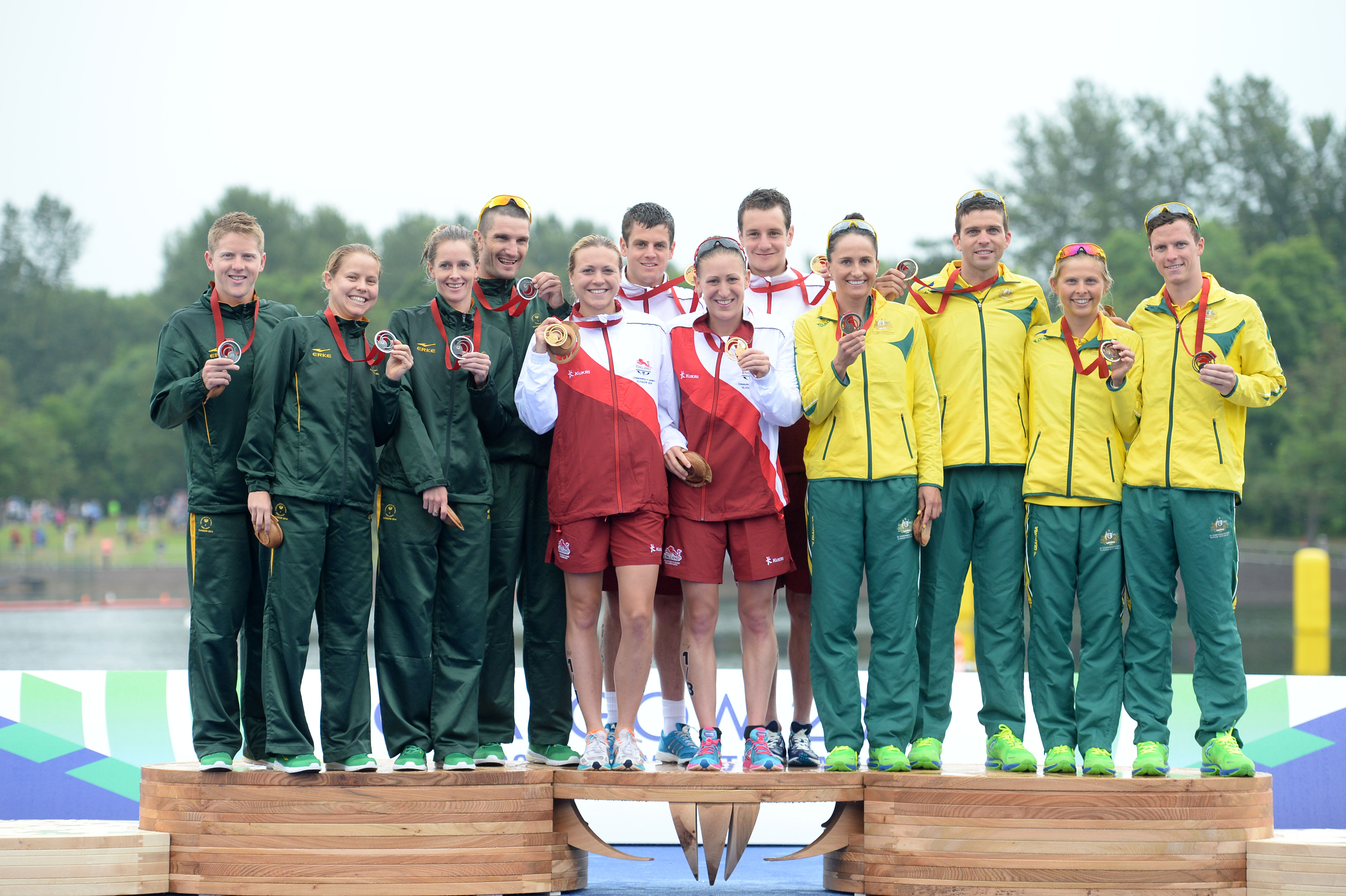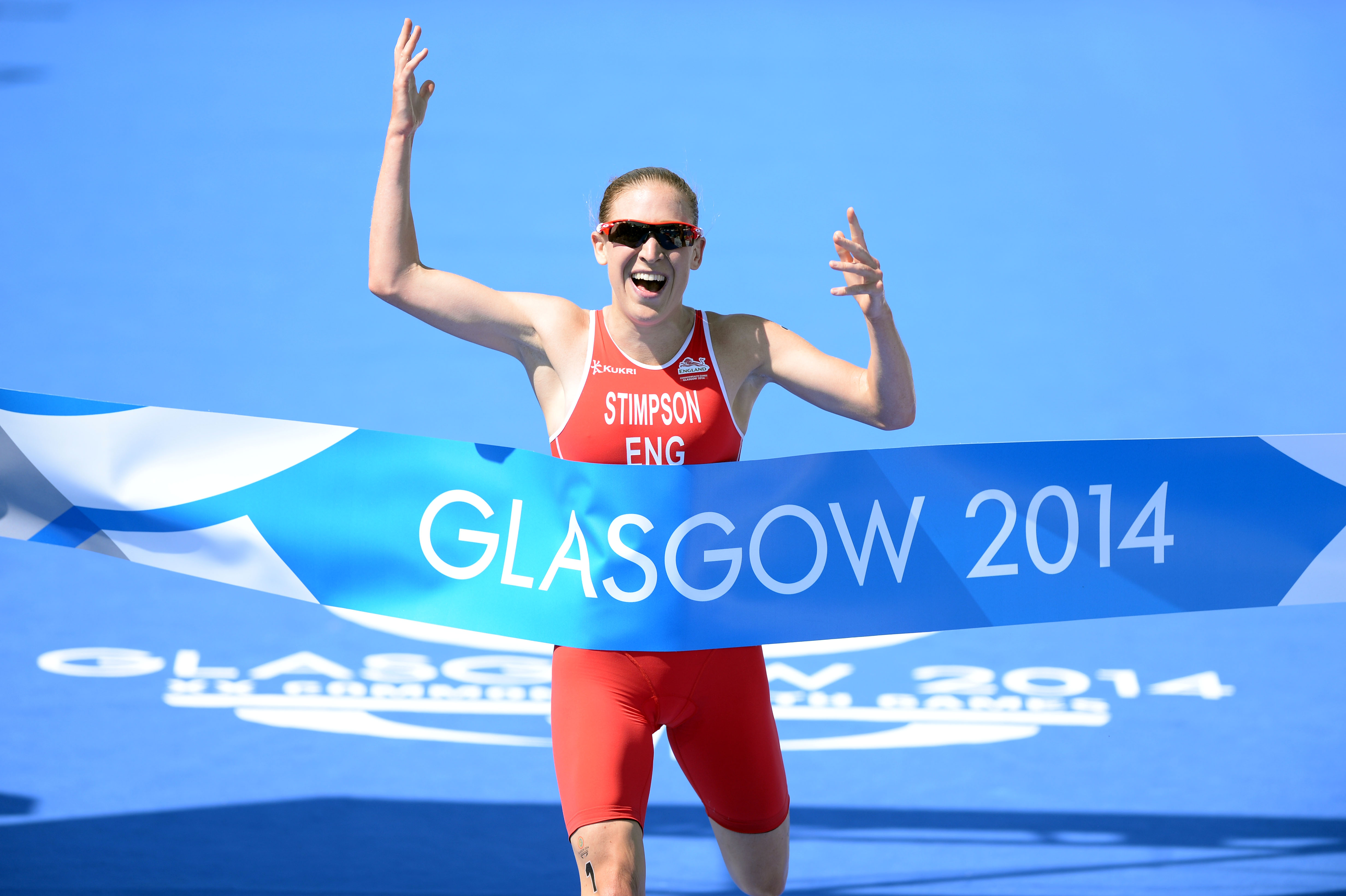With the Gold Coast 2018 Commonwealth Games just about to celebrate its opening ceremony, on April 4th, let’s take a look at some facts and figures about triathlon’s history in this major event.
Triathlon is set to make history in many ways at Gold Coast Commonwealth Games, featuring four adrenaline-fuelled events. For the first time in the Game’s history, the individual races will be run on a fast and furious sprint course, so that athletes can easily compete two days after in the frantic Mixed Relay event. It is also the debut of the Paratriathlon, with male and female athletes of the PTWC class taking the stage on Saturday. And once again, the female triathletes will compete to win the first medal of the Games!
Triathlon times:
Thursday, 5 April: Women – 09:30 am, Men - 13:00pm
Saturday, 7 April: Paratriathlon PTWC Men and Women – 09:30 am, Mixed Relay - 13:00pm
Where to watch:
The start, finish and transitions for the Triathlon will be located at the northern end of the Southport Broadwater Parklands. Grand stands tickets to watch the finish line are sold out, but with the course running in Biggera Waters, Labrador and Southport, there are some great vantage points along the course where you can view the cycling and running stages of the race for free and cheer on the athletes.

About the venue:
Featuring a stunning natural landscape, the Southport Broadwater Parklands is a place to connect, energise and relax in the heart of the Gold Coast’s CBD.
In April 2018, the parklands and Broadwater will be put on the world stage, hosting the start and finish of the GC2018 Athletics – Marathon and Triathlon events.
What are the Commonwealth Games:
With 70 competing nations and territories, the Commonwealth Games 2018 will be held in the Gold Coast. Located to the south of Queensland’s state capital Brisbane, the Gold Coast is one of Australia’s most captivating cities. Beyond the world-renowned beaches, the Gold Coast is a place of powerful contrasts. There are 16 competition venues hosting 23 sports.
The Queen’s Baton Relay (QBR) is the ultimate symbol of the Commonwealth Games. The Baton carries a message from Her Majesty The Queen on a journey through the Commonwealth to its final destination, the Games’ Opening Ceremony. More than one million steps are being taken by 3,800 batonbearers – local legends who have been nominated by their communities. After travelling a record 230,000 kilometres, the Baton arrives at the Opening Ceremony on 4 April, where the Queen’s message will be read aloud to officially open the XXI Commonwealth Games.
The Mascot
Borobi, an extremely energetic koala, is the official mascot of GC2018. His distinctive bright blue fur and trademark thumbs-up gesture perfectly complement his friendly, cheeky and vibrant personality – a personality that shines through at all times, attracting and engaging with people of all ages, especially children.

Triathlon at the Commonwealth Games:
This is triathlon’s fourth appearance on the Commonwealth Games programme. It was first officially added in 2002 and appeared again in 2006, but then we had to wait until 2014 to have our sport included in the program again. It was in that year, in the Glasgow Commonwealth Games, where the Mixed Relay made its debut, while in this edition of the Commonwealth Games, in the Gold Coast, the debut will be for the paratriathlon, with male and female paratriathletes competing in the PTWC class.
Commonwealth not so common:
Triathlon is quite prominent in Commonwealth countries, with 16 of triathlon’s 38 Olympic medallists having hailed from a Commonwealth, including the one and only double Olympic gold medallist, British Alistair Brownlee. Currently four of the top 10 ranked men and three of the top 10 ranked women hail from Commonwealth nations.

Previous winners:
2002 – Carol Montgomery (CAN), Simon Whitfield (CAN),
2006 – Emma Snowsill (AUS), Brad Kahlefeldt (AUS)
2014 – Alistair Brownlee (ENG), Jodie Stimpson (ENG), Team England
Previous Commonwealth countries on the podium:
On all three previous editions of triathlon in the Commonwealth Games, a country has coped the top podium positions, with Canada claiming gold in the men and women races in 2002, Australia doing the same in Melbourne 2006 and England claiming both titles in the 2014 Games held in Glasgow. New Zealand, Wales and South Africa are the only other nations to have made the podium.
On the start list, we have quite a few medallist from past editions, including Andrea Hewitt (NZL) bronze in 2006, Alistair Brownlee (ENG), gold in 2014; Jonathan Brownlee (ENG), silver in 2014); Richard Murray (RSA), bronze in 2014; Vicky Holland{/exp:tag_this} (ENG), bronze in 2014, and also Henri Schoeman and Gilian Sanders (RSA), silver in the Mixed Relay in 2014.
Triathlon basics:
Triathlon was invented in the early 1970s by the San Diego Track Club, as an alternative workout to the rigours of track training. The club’s first event consisted of a 10km run, an 8km cycle and a 500 metre swim. Over the next decade, triathlon grew by leaps and bounds and soon gained recognition throughout the world. In early April 1989, the International Triathlon Union (ITU) was founded at the first Congress in Avignon, France, the very city that hosted the first official world championships on August 6 later that year.
Triathlon was awarded full medal Olympic status in 1994. The official distance for Olympic triathlon was set at a 1.5-kilometer swim, a 40-kilometer bike and a 10-kilometer run - taken from existing events in each discipline already on the Olympic programme. Paratriathlon was included in the Olympic programme for the 2016 Rio Paralympic Games, with three classes for men and three classes for women. In 2017, the IOC announced that a new triathlon event, the Mixed Relay, will be added to the programme for the Tokyo 2020 Games. Since 1989, the sport has grown rapidly and now has over 172 affiliated National Federations around the world.

